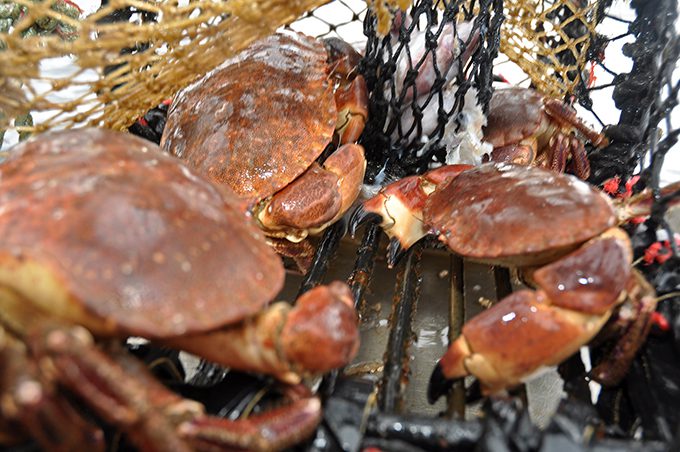12 November 2013
As Jonathan Leak, the Sunday Times’ Environment Editor, was the journalist who last year announced to the world that there were only 100 adult cod left in the North Sea – when the real figure was 23 million – perhaps we don’t need to panic too much yet about his latest apocalyptic pronouncement “Crab faces Commercial Extinction in parts of Britain.”
The first
thing to say is “No it doesn’t.”
Crab, along
with all shellfish and finfish stocks, require judicious management to ensure
that catches today don’t jeopardise long term sustainability. The latest
assessments suggest that timely intervention in a number of crab fisheries is required.
But this is a million miles away from the hysterical exaggerations of the
Sunday Times. The only saving grace is that this time it is celebrity chefs
such as Hugh Fearnley-Whittingstall that are being portrayed as the pantomime
villains.
Crab – A Good News Story
In fact,
crab stocks and the crab fisheries around the coast of the UK over the last
decade have experienced a veritable boom. This may not be unconnected with the
dip in fortunes experienced by species like cod, because cod is a voracious
predator and quite partial to crab larvae. Whatever the reason, stocks of crab,
lobster and prawns have seen very high recruitment and abundance during the
period that whitefish stocks were at a low. As the finfish stocks make their
return there is good reason to monitor carefully what happens now. And that is
what the scientists, with the full cooperation of fishermen, have been doing.
The 40 per
cent increase in crab landings since 1996 reflects both a rise in natural
abundance and a shift in fishing effort. This is a story of good fortune, the
fishing industry’s resilience and ability to adapt to changing circumstances
and the British public’s increase appreciation for a great delicacy.
But crab has
one great advantage over many finfish species – when they are returned to the
sea they survive and thrive – so there is no discard problem in this fishery.
With its cod
exaggeration the Sunday Times earned the accolade as providing “The most Inaccurate Headline in History”
from the BBC. But it seems that they have come back for more.
Responsible Fishing
All this
froth doesn’t deflect us from the need to take scientific stock assessments
seriously, or the need to support carefully thought-through measures tailored
to the characteristics of individual fisheries. The National Federation of Fishermen’s
Organisations has been working on such an approach for the last two years.
Providing food for the nation and doing it in environmentally and socially
responsible ways is our goal. The Federation some 18 months ago called for a
cap on any new licences for the larger class of crab vessel in order to
stabilise fishing pressure on the crab stocks and has pressed ministers to act.
But this
measured, careful approach is the exact opposite of media driven panic
measures. If sensationalist journalists and celebrity chefs wish to devour
themselves that is their business: they should, however, leave fishing and
fishermen out of their games.

